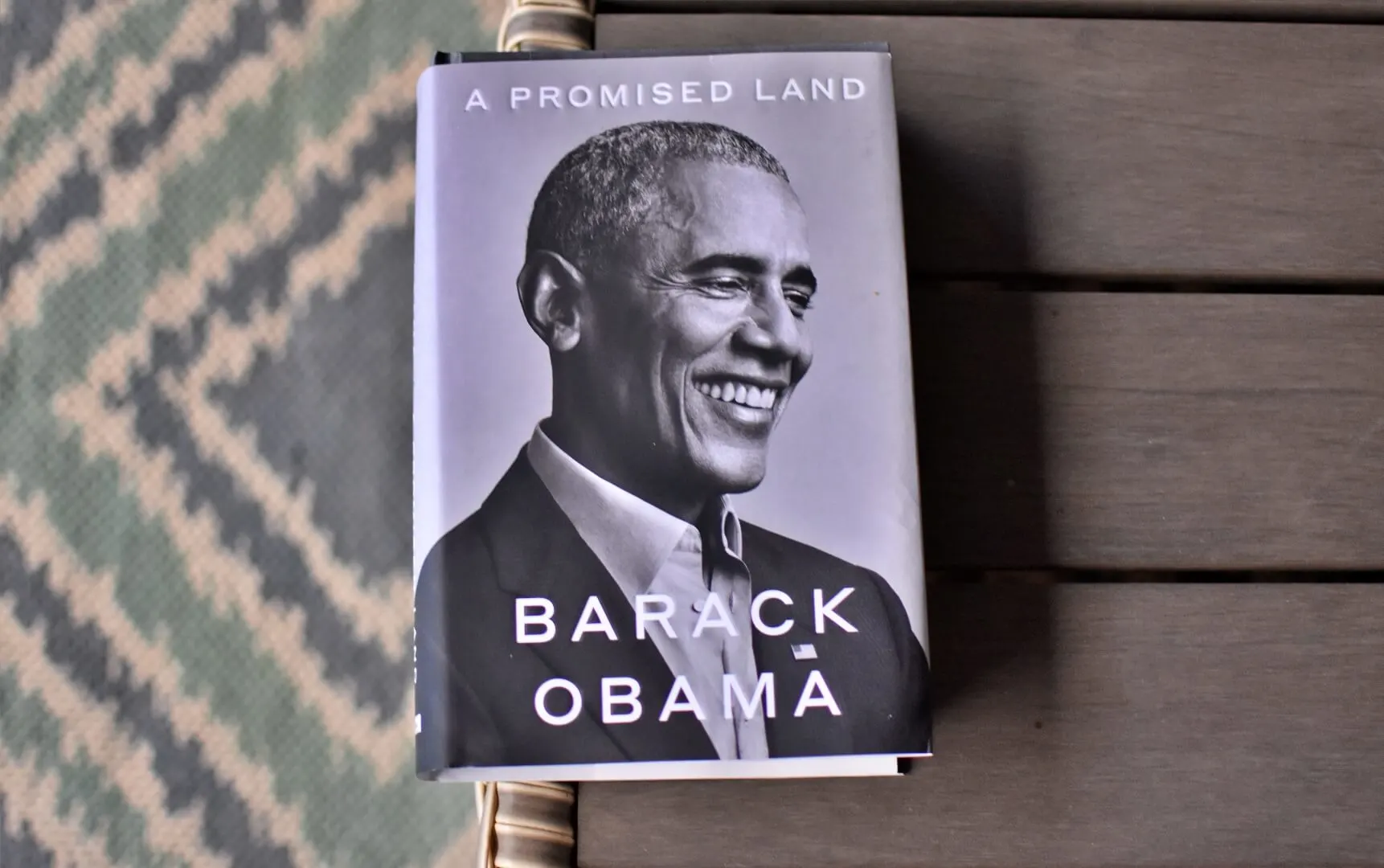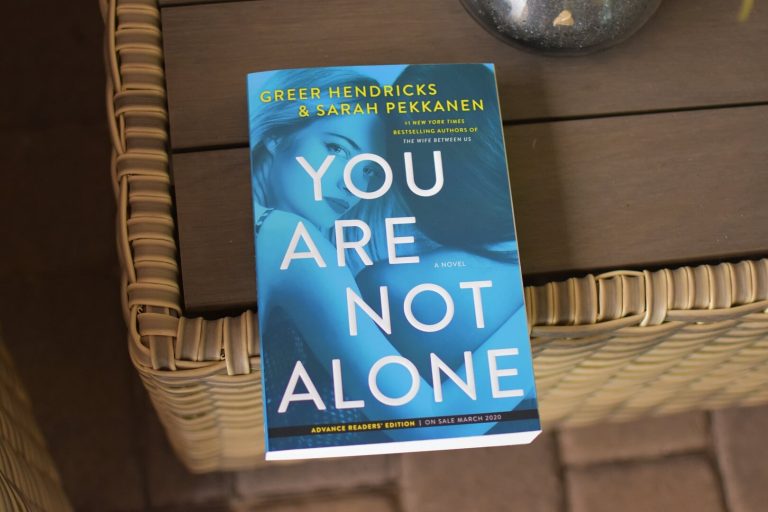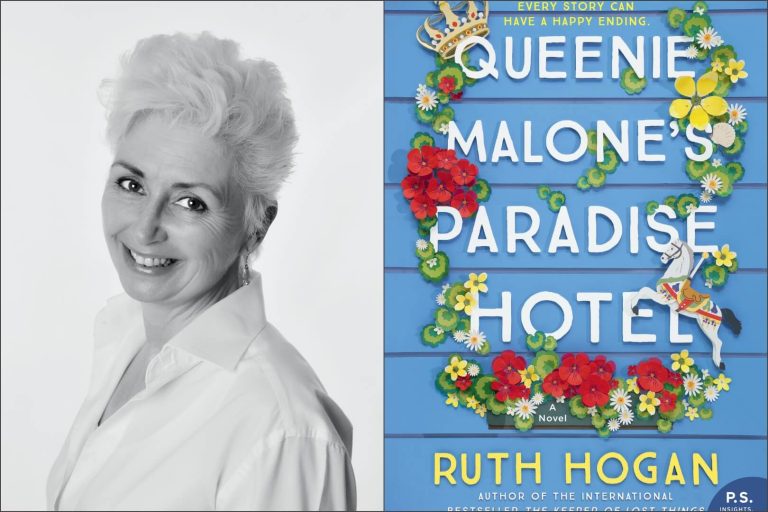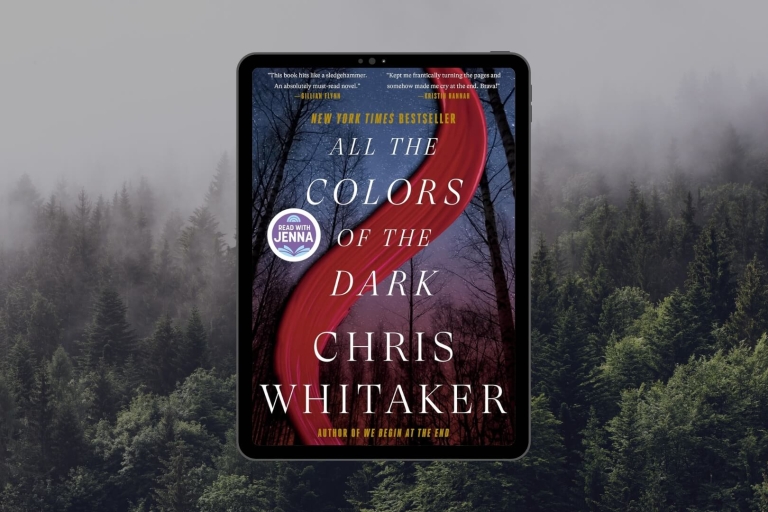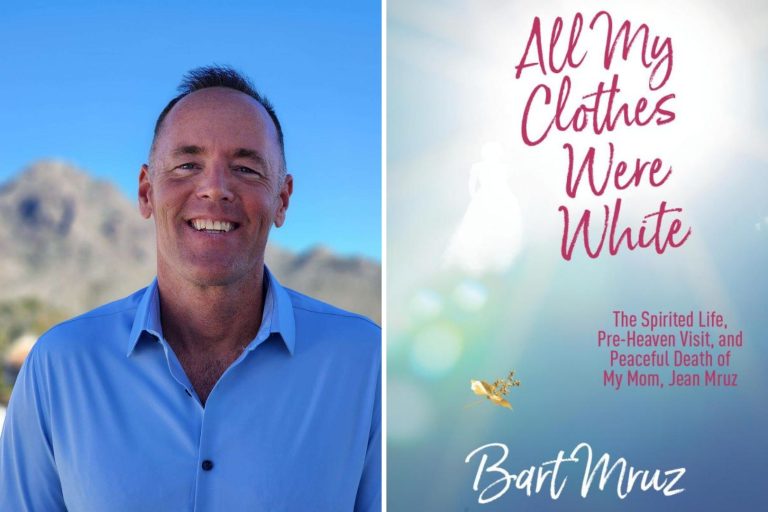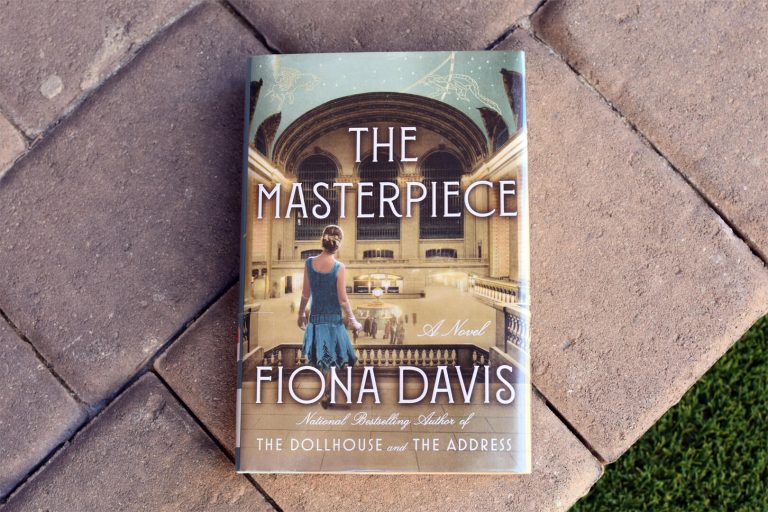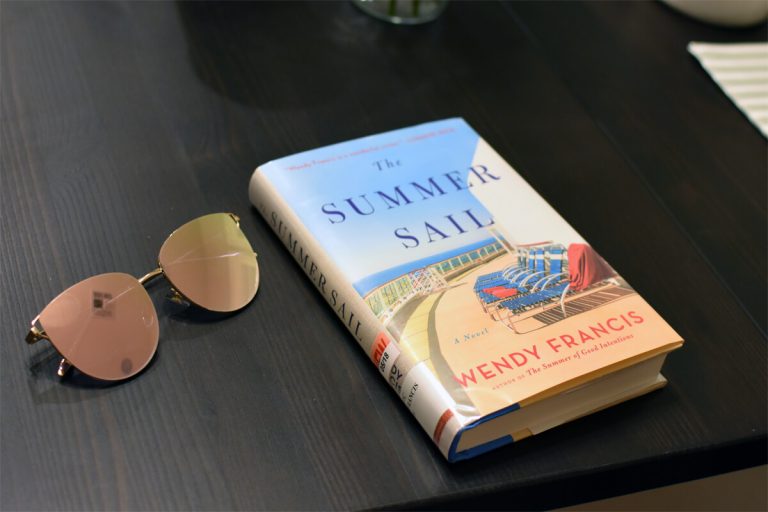This post contains links to products that I may receive compensation from at no additional cost to you. View my Affiliate Disclosure page here.
Book club questions and discussion for A Promised Land by Barack Obama provides an in-depth look at each important aspect of this memoir.
A Promised Land is the first presidential memoir that I’ve read. It’s a huge book with so many rich details. It seemed people expected this memoir to come out earlier but you can tell that Obama put so much thought and time into getting this right. I learned quite a bit while reading it.
Since A Promised Land is so lengthy and covers a wide variety of topics and time periods, I’m breaking down the questions by each part.
Book Club Questions for A Promised Land
Part One
- First, let’s talk about why President Obama named his memoir A Promised Land. How do you define a promised land?
- What do you think about the fact he wrote this book by hand? Why do you think he decided to write about his presidency in two parts?
- Obama writes this after Trump has taken office—someone who is against literally everything Obama was for. Let’s try to put ourselves in the mindset of Obama working on this book knowing that a lot that he worked for might be overturned.
- Part One of the book features insights into Obama’s past and his eventual road to politics. What was some of the more surprising aspects of his younger years? Did you learn anything new about him?
- In Chapter 2, Barack talks about meeting Michelle. Why do you think they make for such a good match? What do you think are some of the key lessons he learned from his relationship with Michelle?
- Obama hit some road blocks into his first foray into politics. Let’s talk about how the initial failures ended up shaping his way he approached politics in the future.
- Michelle has not concealed the she has no love for politics. When Barack is considering a run for president, she’s upset as it completely turns the life they had upside down and they will never be able to go back to how it used to be. On page 70, Michelle asks Barack, “God, Barack…When is it ever going to be enough?” Let’s discuss Michelle’s hesitation with her husband running for president.
- Why do you think Obama continued to move forward with running for the presidency? Was it simply just inevitable with his huge popularity as a senator that he could win and make a difference? Was there also ego involved?
Part Two
- This part covers his presidential campaign. And he’s pretty honest with how he felt about it—campaigning is tough and tiresome. What did you find are some of the more surprising aspects of campaign life?
- Why was Obama initially not such a great debater?
- What did you think about the rivalry with Hillary Clinton?
- South Carolina was an important primary win for Obama. At his victory speech, people were chanting, “race doesn’t matter! Race doesn’t matter!” But Obama writes, “I didn’t have the heart to correct those well-meaning chanters—to remind them that in the year 2008, with the Confederate flag and all it stood for still hanging in front of a state capitol just a few blocks away, race still mattered plenty, as much as they want to believe otherwise.” Let’s discuss what Obama is saying here.
- Obama talks about how the internet and digital networks help him secure the democrat nomination and eventual presidency. He initially was inspired by it but wrote how he could not anticipate “how one day many of the same tools that had put me in the White House would be deployed in opposition to everything I stood for.” In viewing how technology was used back then to how it is now—would it have helped or hinder an Obama campaign if he ran today? Would he still have been able to secure the nomination? What do you think could be done about all the misinformation on the internet and social media?
- “Clinging to guns or religion” is something that is brought up this day. Obama still seems frustrated how this is still misunderstood. Why do you think this phrase has had a lasting impact? What does it say about some of the white voter base in this country?
- Why do you think Obama won over Hillary?
- It’s interesting that Joe Biden wasn’t the overwhelming first choice for VP. Why do you think it ultimately ended up being the right decision?
- This section also goes into Obama’s campaign against McCain. What were the key takeaways from this presidential race?
- Let’s talk the significance and the pressure of being the first black family to live in the White House.
- Did you watch Obama’s acceptance speech when he won the presidency?
Part Three
- This section starts off with Obama filling in all the cabinet positions. He seemed focused on experience above all else. What did you think about his initial cabinet selections?
- He details his inauguration day, including there was a potential planned terrorist attack. Obama said that he realized that was now part of his job: “maintaining an outward sense of normalcy, upholding the fiction that we live in a safe and orderly world, even as I stared down the dark hole of chance and prepared as best as I could for the possibility that at any given moment on any given day chaos must break through.” Let’s talk about what it must be like to have that pressure.
- It seems that Obama really went in hoping for collaboration and bipartisanship from the GOP. But he quickly learned that there would be a refusal to work with him and members of his administration. Do you think Obama was naive in thinking that he could work with the GOP or do you think it’s admirable that he tried to find common ground with them? Can bipartisanship exist in today’s politics?
- The early criticism against Obama was that he was trying to do too much and change should just be a slogan. Why are people in general so resistance to real change?
- Overall, what’s your impression of how the Obama administration handled the economic crisis?
- There’s several sections dedicated to the wars in Iraq and Afghanistan. On the same note, do you think his administration did the best they could with those situations or how could they have handled those wars differently?
Part Four
- This part starts off with Obama’s first G20 summit with other world leaders. What did you think about his assessments of the other world leaders?
- Combating terrorism became a huge part of the job, which including ordering people to be killed. He writes, “I took no joy in any of this. It didn’t make me feel powerful. I’d entered politics to help kids get a better education, to help families get healthcare, to help poor countries grow more food—it was that kind of power I measured myself again.” But he goes on to say the other work was necessary. What is your impression of how Obama handled this area?
- The rest of the section is dedicated to passing healthcare reform and showing all the impacts of the rise of the Tea Party. Why was there (and still is) a struggle to get the message of healthcare reform across to voters? Why are voters resistant to change in this area?
- Did you get any additional insights on what it’s like to pass a bill?
- Many people questioned if it was the right move for Obama administration to focus on healthcare reform in his first term. What are your thoughts on this?
- There’s a brief mention of the H1N1 virus and how that was handled. Let’s compare the Obama response to the Trump response to COVID-19.
- Do you think the passage of the Affordable Healthcare Act was one of Obama’s proudest accomplishments?
Part Five
- This section is more in-depth on foreign policy including the wars in Iraq and Afghanistan. Will there be an end in sight to the wars?
- Much of this chapter is prelude to what was to come such as the Iran nuclear treaty and the Paris Climate Agreement. Let’s discuss both of these important areas.
- Obama says that when he first ran for office, climate change wasn’t much on his radar compared to better housing, education, healthcare and jobs. What were the key factors for him to take notice that climate change is a huge issue?
- Why do you think it took so long for the U.S. to take more meaningful actions against combating climate change?
Part Six
- This section is dedicated to many of the rough patches that Obama faced in his first term. Let’s first talk about the public outcry over the bailouts.
- At one point, Nancy Pelosi encourages Obama to talk with the American public about how Republicans are blocking his administration on everything. Do you think Obama and his team should have called out the Republicans more? Would it have made a difference?
- The midterms were devastating for the Obama administration and the democrats. Why did voters turn away from democrats that year?
- Obama writes that the dominant storyline in the post election coverage was that “I’d attempted to do too much and hadn’t stayed focus on the economy; that Obamacare was a fatal error: that I’d tired to resurrect the kind of big-spending, big-government liberalism that even Bill Clinton had pronounced dead years ago.” Do you feel any of these statements are true? Could the administration have communicated the policies better to the American people?
- After the midterm loses, the administration pulled of a successful lame-duck session. In six weeks, the House and Senate had enacted 99 laws. Obama writes that for a space of a month and a half, democracy was normal again. “What more might we have accomplished, I wondered, and how much further along would the economic recovery be, had this sort of atmosphere prevailed from the start of my term?” What are your thoughts on this?
Part Seven
- This section is focused on foreign policy and military operations. What did you think about the sections dedicated to the hunt for Osama bin Laden and his death? Did you gain any more insights from those sections?
- Donald Trump makes multiple appearances in this section with a big focus on him spouting “birtherism” and other lies. Why do you think Trump was able to get so much media attention for this? How did this set the stage for what was eventually to come?
- What was your overall impression of Obama’s memoir?
- How do you think history will view Obama’s first term?
- What do you hope will be included in Part Two?
Additional recommendation
Hope you enjoyed book club questions for A Promised Land! Here’s another recommendation along with a link to book club questions.
Becoming by Michelle Obama

If you haven’t read Becoming yet, you should add it it to your list immediately!
In a life filled with meaning and accomplishment, Michelle Obama has emerged as one of the most iconic and compelling women of our era. As First Lady of the United States of America—the first African American to serve in that role—she helped create the most welcoming and inclusive White House in history, while also establishing herself as a powerful advocate for women and girls in the U.S. and around the world, dramatically changing the ways that families pursue healthier and more active lives, and standing with her husband as he led America through some of its most harrowing moments. Along the way, she showed us a few dance moves, crushed Carpool Karaoke, and raised two down-to-earth daughters under an unforgiving media glare.
In her memoir, a work of deep reflection and mesmerizing storytelling, Michelle Obama invites readers into her world, chronicling the experiences that have shaped her—from her childhood on the South Side of Chicago to her years as an executive balancing the demands of motherhood and work, to her time spent at the world’s most famous address. With unerring honesty and lively wit, she describes her triumphs and her disappointments, both public and private, telling her full story as she has lived it—in her own words and on her own terms. Warm, wise, and revelatory, Becoming is the deeply personal reckoning of a woman of soul and substance who has steadily defied expectations—and whose story inspires us to do the same.
You can order the book on Amazon here. Check out my book club questions here.
